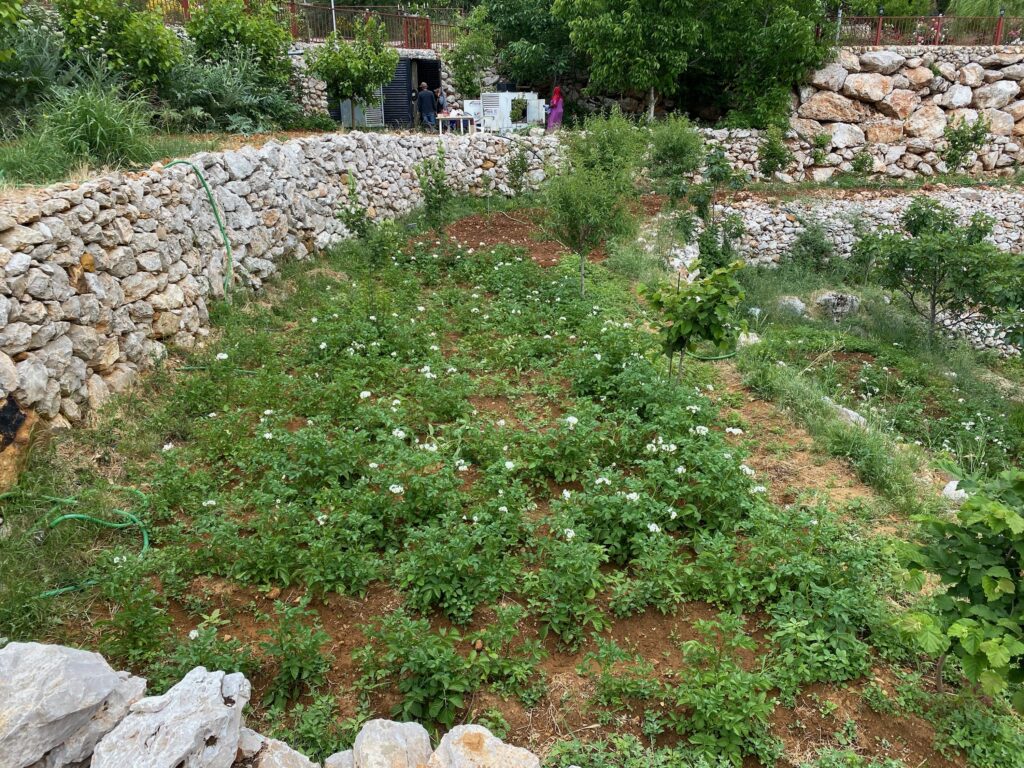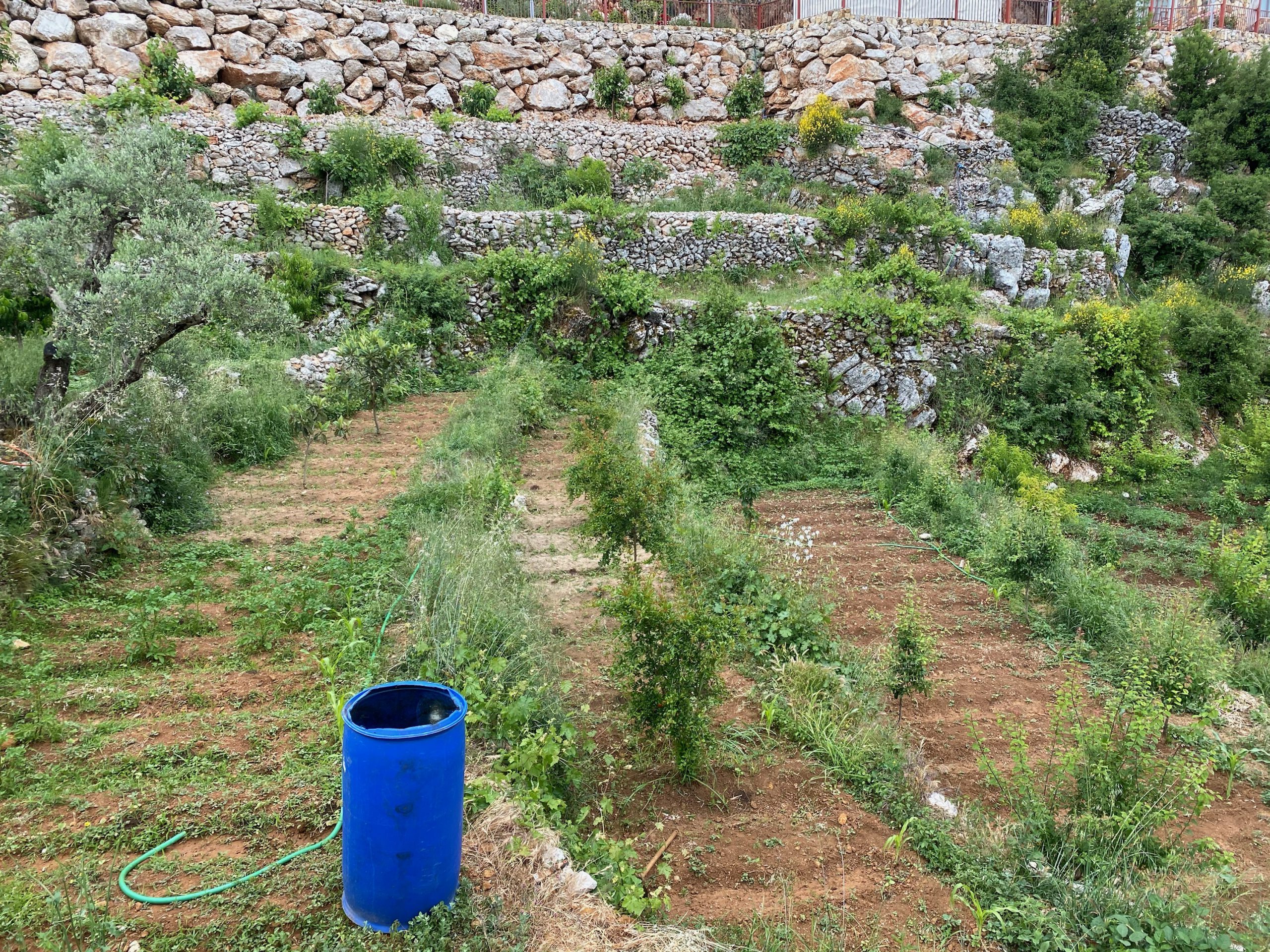The economic impact of COVID-19 is probably the hardest hit to the global economy in recent history. Complete economies have come to a standstill: Millions of dollars lost, multinational companies filing for bankruptcy, millions of individuals filing for unemployment, and airlines shutting down.
Here in Lebanon, on-and-off rumors of bread shortages, horror stories of inflated prices, internet blackouts, income disparity, and a crumbling currency are terrorizing a population also faced with capital control, an economic catastrophe, a nationwide deadlock, and a COVID-19 outbreak.
How is the population coping?
At the beginning of this year, the World Bank estimated that 45 percent of the Lebanese population is now living below the poverty line. With the COVID-19 outbreak halting the economy, the government now believes that 75 percent of the country is in need of aid.
This was only worsened by isolation measures and a nation-wide lockdown that forced most of the urban population to retreat to their rural family homes. Dismissed, on unpaid leave, or working for salaries in a currency that has lost over half of its value in the black market, many citizens are left asking: How can I keep myself and my family secure?
“From dirt to dirt”

In mountainous regions, the abundance of fertile land and a nationwide lockdown has given individuals plenty of time to invest at home. Some sought out baking, and an overwhelming majority has sought out farming.
As a nation of natural farmers, agriculture is a large part of Lebanon’s economy. The country does not need to import vegetables. With wealthy soil and an accepting climate, vegetation is plush and diverse. Farms and groves line the countryside, covering mountaintops and acting as gardens for many homes that live here.
Over a phone call with my grandmother, I came to learn the numerous amounts of seeds she has been planting in her garden. She has kept to her yearly tradition of farming, and come July, her garden is normally bursting with fruits and vegetables.
Due to the economic crisis, the youth is joining in on the agricultural movement. The tech-savvy, industrialized generation is setting aside its cellphones and computers in favour of picking up tools that are normally manned by the generations before them. Normally told to look away from the earth for sustenance and security, younger generations just now are coming to bond with mother nature in light of this economic crisis.
In times of uncertainty, we are turning back to the earth. Kanj Hamade, a development economist and political activist, believes that the benefits of this are mostly positive.
“This is a positive coping strategy in our current times,” says Hamade.
Hisham, 28-years-old, was working as a graphic designer pre-COVID-19. Now, he tells me that he wants to continue as a full-time farmer. Moving back from Beirut to his hometown Falougha because of the lockdown, he began cleaning a patch of land left to his family by his grandfather. A month later, he found that his family’s old garden was still carrying fertile olive, mulberry, and plum trees.
Perhaps this sudden love for farming has been sparked by deeper existential issues. As the country plummets into crisis, the youth of Lebanon are at a loss of how to build a future here.
These sentiments have been echoed by friends and colleagues alike, who feel as if their hard work to earn bachelor and master’s degrees have been in vain. Youth unemployment is at an all-time high, and many seek solutions abroad.
“Everything that we need comes from the land. All we need to do is practice and learn how to treat it best,” says Hisham.
He set to work ploughing and planting seeds, while tending to an irrigation system that flows straight through from the town’s river to his garden.
How are the government and municipalities supporting local production?
In Falougha, as with most rural towns, municipalities are lending a hand. Falougha Municipality is supporting farming endeavors by providing assistance and renting out supplies to those with fertile land. Hisham tells me that the process is quite straightforward: After calling and registering with them, they will begin to allocate some of their resources to you.
The Progressive Socialist Party of Lebanon, under the leadership of Walid Joumblatt, is aiding by distributing seeds to those interested in farming. Other efforts include civil society campaigns such as Nadine Labaki’s #Zarri3et_Albi, which is receiving tons of media buzz.
#زرّيعة_قلبي حملة وطنية تجمع معظم مبادرات الزراعة المستدامة لمساعدة المواطنين الراغبين في الزراعة في منازلهم أو أراضيهم @BeitElBaraka @ardiardak @AubEsdu @regeneratelebanon@Agronotelb #buzurunajuzuruna #Izraa #helpthemseedforthemtofeed#المبادرة_الزراعية_الشعبية #سكّة pic.twitter.com/S6rO7Do6QO
— Nadine Labaki (@NadineLabaki) May 16, 2020
When lockdown policies forced us indoors, many of us began to long to return outside: Not to pubs or restaurants, but merely to be in touch with nature once again. Returning to our roots is vital, and we can harness this intention when planting.
Labaki’s campaign, whose name translates to “the seeds of my heart,” looks to consolidate sustainable agriculture initiatives with an ethos of sustainable production and living.
Other initiatives have expressed the same sentiments. In line with Ardi Ardak, the American University of Beirut Faculty of Agricultural & Food Sciences, Beit Al Baraka, Buzurna Juzurna, Agronote, Regenerate Lebanon, and ESDU-AUB, #Zarri3et_Albi is a huge nation-wide campaign with a buzz that speaks volumes.
See also: Introducing Beit El Baraka, the NGO giving free food, shelter, and medicine to Lebanese retirees
Under the hashtag, #HelpThemSeedForThemToFeed, Labaki has built a modern platform for citizens interested in getting the support they need to adopt a sustainable lifestyle –one that will not collapse at the tampering hands of the government.
Are we moving forward?
Kanj Hamade acknowledges that there is a growing gardening trend across the country, with three main intentions. The first is when individuals turn to agriculture as a hobby: COVID-19 confinement and self-isolation in Lebanon came around the same time as planting season, giving many middle and upper-class individuals time to invest in their gardens.
The second, which refers mainly to the working class, is when individuals turn to agriculture as a livelihood. This, Kanj states, is mostly a reaction to the slipping economy and country’s general instability as families are struggling for food security. Most families in this category are probably receiving assistance from the government or non-governmental institutions, but have turned towards farming for added sustenance due to lack of sufficient aid.
The third, and most ambiguous intention, is increased agricultural investment and the reinvestment in agricultural production. This refers to large-scale, market-oriented production. He says it’s too early to tell if this type of agriculture is part of the “revolution” that we are seeing across the nation, as the response and reply for this type of investment is quite slow.
However, he warns that with little data, we should be wary of this type of agricultural production. If done without proper guidelines or a roadmap for the sector nationwide, it could lead to market saturation. The risk of oversupply runs high with fruits specifically, but these repercussions will not surface for a minimum of another 3 to 4 years.
“We don’t want the same fate as the Lebanese apple,” says Hamade.
Food independence is a way to achieve a new, independent normal away from the market fluctuations and trade wars. Staple goods have more than doubled in price, with many families relying on aid and donations to keep meals on the table.
Those that have the resources are investing them to gain increased independence from markets, in a move that can be seen as non-cooperation with the current government institutions and new regulations. With increased consciousness, fiscally and agriculturally, there is bound to be the creation of economic bubbles: People are virtuous of where they are investing, with a newfound understanding that they should be reaping the returns themselves.
Hisham explains to me that, at this point, the focus is on the present and on what we can do with what we’ve got as we look towards the future.
“Basic needs [are the focus now]. We need to put food on our table, and when the dollar is worth LL 10,000, we’ve got to make sure our parents still have food to put on the table,” he says.
Insecurities surrounding basic needs are growing, with supermarkets putting a cap on how much flour a family can take home. The Lebanese population has learnt a lot from the recent protests. There is a new belief that we have to sew change, it does not just sprout.
As our interview comes to a close, Kanj leaves me with essential questions: Who is investing in agricultural production? Are people planting with biodiversity and organic methods in mind? Are people planting crops like wheat, beans, and pulses –crops generally lacking in the Lebanese market? Are people mindful of conserving our natural biodiversity?
Most importantly: Is this agricultural return sustainable, and can we build a better future with it?


